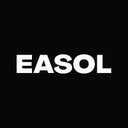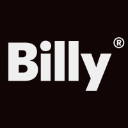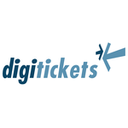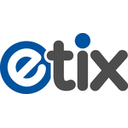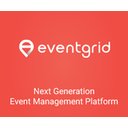Event Ticketing software: purchase guide
Still managing event registrations and ticket sales with Excel sheets, endless email exchanges, or outdated systems? Five years ago, this might have been acceptable. But today, it’s a recipe for chaos. In an era where customer experience is paramount, outdated methods no longer cut it.
Ticketing software is not just a tool for selling tickets. It is the operational heart of your event. It streamlines management, transforms every reservation into a seamless interaction, and helps your team deliver a flawless experience from start to finish.
What Changes with Ticketing Software
The real difference isn't just in ticket tracking. It's in how the system transforms your entire operation: managing bookings, improving user experience, tracking performance... Here’s what you can expect:
Your sales increase with minimal effort.
No more lost sales due to a complicated interface. With an intuitive and optimized purchasing process, your attendees can easily and quickly reserve their tickets, naturally boosting your revenue.
Attendees enjoy a smooth experience.
From booking to event entry, every interaction is seamless. With centralized management, your team has all the necessary information at hand. Gone are the days of confusion, like "I can't find your ticket."
Your team can focus on what matters.
Manual confirmation emails, reminders, or handling cancellations? Done. Automated processes handle these repetitive tasks, freeing your team to focus on greeting guests and managing the event.
Your event visibility is enhanced.
Why do certain dates sell out faster? Which marketing channels generate the most registrations? Customizable dashboards give you real-time answers, allowing you to adjust your marketing strategy with precision.
You can finally scale without breaking anything.
Growing your event business is great – unless your booking system can’t keep up. Modern platforms are designed to scale with you, whether you’re expanding from 100 to 10,000 attendees or hosting multiple events simultaneously.
Essential Features – and Why They Matter
Let’s break down the essential features you need in ticketing software. These aren’t just "nice-to-haves," but must-have features that take your events from “we have a system” to “our events run like a well-oiled machine.”
Intuitive User Interface
A good user experience reduces cart abandonment. The journey should be simple, smooth, and accessible on both mobile and desktop.
Complete Customization
From event pages to tickets, customization reflects your brand and creates a memorable experience. It’s not just about aesthetics; it’s strategic.
Secure Payments and Refunds
Your system should securely handle financial transactions, refunds, and reassure your attendees every step of the way.
Automated Communications
Automated reminders, personalized confirmations, or post-event follow-ups – these actions should be handled automatically by your ticketing software.
Effective Integrations
Your software must integrate smoothly with your CRM, email marketing tools, and accounting systems, reducing manual input and increasing efficiency.
Real-Time Reporting and Analytics
Easily access key event data to identify opportunities and make informed decisions about your event strategy.
The Best Ticketing Software to Know in 2025
Dedicated Event Ticketing Solutions
If your goal is to streamline your event management with efficiency and professionalism, these tools are made for you.
| Software |
Ideal For |
Key Strengths |
What You Need to Know |
| Eventbrite |
Events of all sizes |
Wide reach, integrated marketing tools, easy to use |
Fees per ticket sold. Suitable for events of all sizes. |
| Weezevent |
European organizers |
Advanced customization, cashless management, French-language support |
Flexible pricing based on features used. |
| Billetweb |
Small organizations and associations |
Simplicity, competitive pricing, essential features covered |
Fixed fees per ticket. Suitable for smaller budgets. |
| Imagina |
Innovative and hybrid events |
All-in-one solution, interactivity, mobile app |
Pricing on request. Requires a demonstration before purchase. |
Global Integrated Platforms
For large enterprises hosting complex events, these solutions go beyond simple ticketing and integrate complete event management.
| Software |
Ideal For |
Key Strengths |
What You Need to Know |
| Cvent |
Large enterprises and conferences |
Complete event management, automation, advanced reporting |
Pricing on request. Powerful but complex solution. |
| Eventtia |
Multinational or multi-event hosts |
Integrated event management, multilingual, scalable |
Custom pricing. Dedicated support required. |
| Xing Events |
B2B international events |
Professional audience, CRM integrations, detailed tracking |
Pricing on request. Suitable for large volumes. |
The takeaway? If your focus is fast growth with simplicity, go for a dedicated solution. If you’re handling large-scale, multi-service events with stringent governance, integrated platforms are the way to go.
How to Successfully Deploy Ticketing Software
Adopting a platform is one thing. Effectively using it for all your events is another. Here’s how to ensure a smooth transition:
Clarify your needs upfront.
What challenges are you facing? What are your specific goals? Clearly defining these from the start will guide the next steps and help you choose the right software.
Involve your team early and regularly.
Don’t make the decision alone. Engage your team from the first discussions with providers. Their feedback will help ensure smooth adoption.
Start with a pilot, learn quickly, then scale.
Avoid a full rollout all at once. Start with a small-scale event, adjust based on what works, and only then expand to all your events.
Train based on real-world scenarios.
Training should reflect practical situations: creating events, managing cancellations, checking attendees in. Show how the tool makes their jobs easier.
Maintain fluid communication after launch.
Launch day is just the beginning, not the end. Set up a dedicated channel for questions, gather feedback regularly, and reassure your team throughout the adoption process.
Measure the real impact, not just usage.
It’s not enough that your team logs in – track real outcomes. Have response times decreased? Are your attendees happier? Use data to assess the tool’s true impact and optimize your processes.
Trends to Watch in 2025
The event ticketing landscape is evolving rapidly. Here are some key trends to anticipate now:
Dynamic Pricing
Adjust your prices in real time based on demand to optimize revenue.
Immersive Experiences
Leverage augmented or virtual reality to enhance participant engagement.
Mobile Ticketing
Offer a fully mobile experience with digital tickets and QR codes for quick, seamless access.
Advanced Data Management
Use your event data to better understand your attendees and optimize future events.
Connected Systems and Advanced Integrations
Prioritize tools that integrate seamlessly with your other systems for maximum efficiency.
Conclusion: Choose Smartly, Grow Faster
Ticketing software is no longer just an accessory. It’s a strategic lever that enhances the attendee experience, optimizes your event management, and supports your growth.
Start by identifying what’s holding you back today. Find the right solution to address those challenges, deploy it thoughtfully, train your team, and continuously improve.
Because in 2025, event ticketing won’t just be a functional necessity – it will be one of your greatest competitive advantages.
